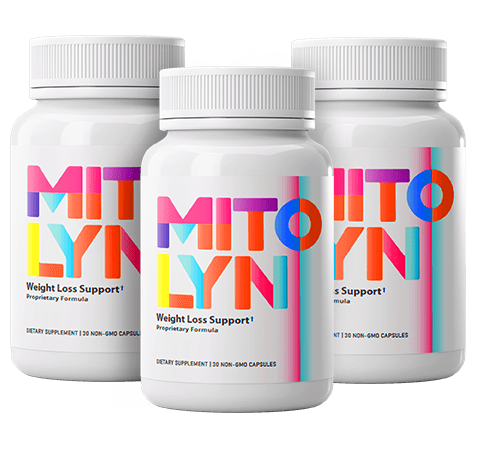Ultimate Guide to Embracing a Plant-Based Lifestyle for Optimal Health and Wellness
With the rise of awareness about the impact of our food choices on both our health and the environment, more and more people are turning to a plant-based lifestyle. Whether you’re looking to improve your health, reduce your carbon footprint, or simply explore new culinary possibilities, embracing a plant-based diet can have a myriad of benefits. In this ultimate guide, we will explore the key aspects of transitioning to a plant-based lifestyle for optimal health and wellness.
Understanding a Plant-Based Lifestyle
Before diving into the practicalities of transitioning to a plant-based diet, it’s important to understand what exactly a plant-based lifestyle entails. Unlike a vegetarian or vegan diet, which exclude animal products entirely, a plant-based diet focuses on consuming primarily plant-derived foods such as fruits, vegetables, whole grains, nuts, and seeds. This means that while animal products may still be consumed in moderation, the emphasis is on plant-based foods.
Benefits of a Plant-Based Diet
There are numerous benefits to adopting a plant-based lifestyle, both for your health and the planet. Plant-based diets are rich in fiber, vitamins, minerals, and antioxidants, which can help reduce the risk of chronic diseases such as heart disease, diabetes, and cancer. Additionally, plant-based diets have been shown to be more sustainable and environmentally friendly, as they require fewer resources and produce fewer greenhouse gas emissions compared to animal-based diets.
Transitioning to a Plant-Based Diet
Transitioning to a plant-based diet can seem daunting at first, especially if you’re used to eating a diet high in animal products. However, with the right approach and mindset, it can be a rewarding and enjoyable experience. Here are some tips to help you make the transition smoothly:
Start Slow
Instead of going cold turkey, consider gradually reducing your intake of animal products and increasing your consumption of plant-based foods. Start by incorporating more fruits, vegetables, whole grains, and legumes into your meals, and gradually phase out animal products over time.
Experiment with New Foods
One of the best parts of transitioning to a plant-based diet is the opportunity to explore new foods and flavors. Experiment with different fruits, vegetables, grains, and plant-based protein sources to find what you enjoy and what works best for your body.
Plan Your Meals
Meal planning is key to a successful transition to a plant-based diet. Take the time to plan out your meals and snacks for the week, making sure to include a variety of plant-based foods to ensure you’re getting all the nutrients you need.
Key Nutrients to Consider
While plant-based diets are rich in many essential nutrients, there are a few key nutrients that may require special attention. Here are some nutrients to consider when transitioning to a plant-based diet:
Protein
Protein is an essential nutrient that plays a vital role in building and repairing tissues in the body. While many plant-based foods are rich in protein, such as beans, lentils, tofu, and tempeh, it’s important to ensure you’re getting an adequate amount of protein in your diet.
Iron
Iron is another important nutrient that is commonly found in animal products, but can also be obtained from plant-based sources such as leafy greens, legumes, nuts, and seeds. To enhance iron absorption, it’s recommended to consume iron-rich foods with vitamin C-rich foods.
Calcium
Calcium is essential for strong bones and teeth, and while dairy products are a common source of calcium, plant-based sources such as leafy greens, almonds, and fortified plant milks can also provide this important nutrient.
Common Questions About Plant-Based Diets
As you embark on your journey to a plant-based lifestyle, you may have some common questions and concerns. Here are some answers to frequently asked questions about plant-based diets:
Can I get enough protein on a plant-based diet?
Yes, it is entirely possible to get enough protein on a plant-based diet by including a variety of plant-based protein sources such as beans, lentils, tofu, tempeh, and quinoa in your meals.
Will I miss out on essential nutrients by cutting out animal products?
With careful planning and a diverse diet, you can easily meet your nutrient needs on a plant-based diet. It’s important to focus on consuming a variety of plant-based foods to ensure you’re getting all the essential nutrients your body needs.
Is a plant-based diet suitable for athletes and active individuals?
A plant-based diet can be suitable for athletes and active individuals, as long as they are mindful of their nutrient intake and ensure they’re getting enough calories, protein, and other essential nutrients to support their active lifestyle.
Conclusion
Embracing a plant-based lifestyle can have a multitude of benefits for both your health and the environment. By focusing on consuming plant-based foods and reducing your intake of animal products, you can improve your overall well-being, reduce your carbon footprint, and explore new culinary possibilities. With the right approach and mindset, transitioning to a plant-based diet can be a rewarding and enjoyable experience. So why not take the first step today towards a healthier, more sustainable future?
Remember, it’s not about perfection, but progress. Start small, make gradual changes, and celebrate your successes along the way. Your body and the planet will thank you for it.










